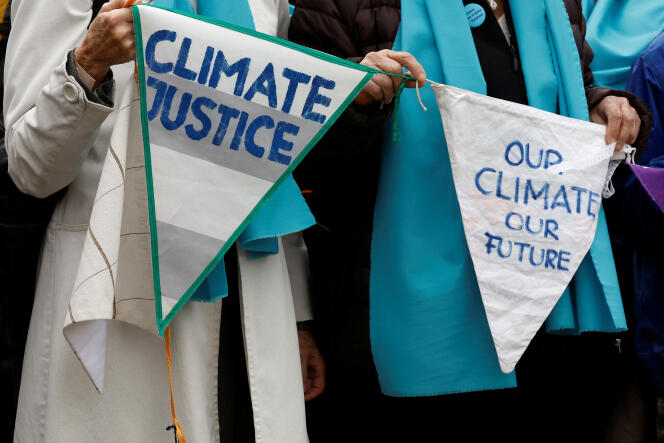
Europe's top rights court ruled on Tuesday, April 9, that Switzerland was not doing enough to tackle climate change, in its first such ruling on the responsibility of states in curbing global warming.
The European Court of Human Rights (ECHR), part of the 46-member Council of Europe, however, threw out two other cases against European states on procedural grounds. Hopes had been high for a legal turning point ahead of the rulings in the three cases, treated as a priority by the 17 judges of the court's Grand Chamber.
In the first case, the court found that the Swiss state had violated Article 8 of the European Convention on Human Rights, which guarantees the "right to respect for private and family life", according to the ruling seen by by Agence France-Presse (AFP).
The case was brought by the Swiss association of Elders for Climate Protection – 2,500 women aged 73 years on average – and four of its members, who complained about the "failings of the Swiss authorities" in terms of climate protection that could "seriously harm" their health. The court ordered the Swiss state to pay the association €80,000 (almost $87,000) within three months.
Activist Greta Thunberg hailed the ruling: "This is only the beginning of climate litigation," she said at the ECHR in Strasbourg. "All over the world more and more people are taking their government to court, holding them responsible for their actions."
'Turning point'
Gerry Liston, of the NGO Global Legal Action Network, said before the rulings the court's position could mark "a turning point in the global struggle for a liveable future." He said a victory in any of the three cases could constitute "the most significant legal development on climate change for Europe since the signing of the 2015 Paris Agreement," which set targets for governments to reduce greenhouse gas emissions.
The decisions from the court in the French city of Strasbourg came as Europe's climate monitor said March this year had been the hottest on record.
In a second case, the ECHR dismissed a petition from six Portuguese people, aged 12 to 24, against 32 states including their own because the case had not exhausted all avenues at the national level. Their case was not only against Portugal, but also 31 other states – every European Union country, plus Norway, Switzerland, Turkey, the United Kingdom and Russia.
Almost all European countries belong to the Council of Europe, not just the 27 EU members. Russia was expelled from the council after its invasion of Ukraine but cases against Moscow are still heard at the court.
'Climate inaction'
In a third case, the ECHR rejected a claim from a former French mayor that the inaction of the French state posed the risk of his town being submerged under the North Sea. The court found that Damien Careme, former mayor of the northern French coastal town of Grande-Synthe, was not a victim in the case as he had moved to Brussels at the time of his initial complaint in 2021.
In 2019, he filed a case at France's Council of State – its highest administrative court – alleging "climate inaction" on the part of France. The court ruled in favor of the municipality in July 2021 but rejected a case he'd brought in his own name, leading Careme to take it to the ECHR.
The European Convention on Human Rights does not contain any explicit provision relating to the environment. However, the court has already ruled based on Article 8 of the Convention that states have an obligation to maintain a "healthy environment," in cases relating to waste management or industrial activities.